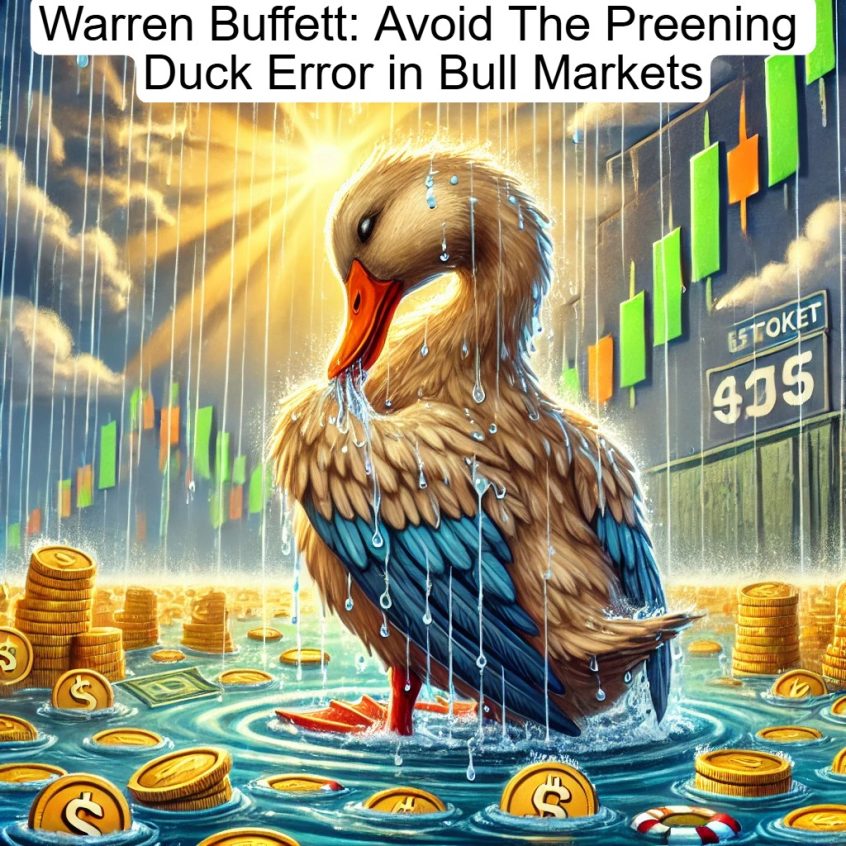In his 1997 Berkshire Hathaway Annual Letter, Warren Buffett reports an $8 billion increase in Berkshire Hathaway’s net worth, reflecting a 34.1% rise in per-share book value.
While acknowledging strong performance, Buffett tempers enthusiasm, noting the broader market’s exceptional gains in 1997. He humorously warns against overconfidence, likening it to a duck attributing its rise to skill during a rainstorm.
Berkshire’s returns trailed the S&P Index, partly due to corporate tax costs, which totaled $4.2 billion. Despite these challenges, Buffett and Vice Chairman Charlie Munger aim for consistent outperformance over time, urging shareholders to judge Berkshire by its long-term edge over the Index.
Here’s an excerpt from the letter:
Our gain in net worth during 1997 was $8.0 billion, which increased the per-share book value of both our Class A and Class B stock by 34.1%. Over the last 33 years (that is, since present management took over) per-share book value has grown from $19 to $25,488, a rate of 24.1% compounded annually.
Given our gain of 34.1%, it is tempting to declare victory and move on. But last year’s performance was no great triumph: Any investor can chalk up large returns when stocks soar, as they did in 1997.
In a bull market, one must avoid the error of the preening duck that quacks boastfully after a torrential rainstorm, thinking that its paddling skills have caused it to rise in the world.
A right-thinking duck would instead compare its position after the downpour to that of the other ducks on the pond.
So what’s our duck rating for 1997?
The table on the facing page shows that though we paddled furiously last year, passive ducks that simply invested in the S&P Index rose almost as fast as we did. Our appraisal of 1997’s performance, then: Quack.
When the market booms, we tend to suffer in comparison with the S&P Index. The Index bears no tax costs, nor do mutual funds, since they pass through all tax liabilities to their owners. Last year, on the other hand, Berkshire paid or accrued $4.2 billion for federal income tax, or about 18% of our beginning net worth.
Berkshire will always have corporate taxes to pay, which means it needs to overcome their drag in order to justify its existence. Obviously, Charlie Munger, Berkshire’s Vice Chairman and my partner, and I won’t be able to lick that handicap every year.
But we expect over time to maintain a modest advantage over the Index, and that is the yardstick against which you should measure us. We will not ask you to adopt the philosophy of the Chicago Cubs fan who reacted to a string of lackluster seasons by saying, “Why get upset? Everyone has a bad century now and then.”
You can read the entire letter here:
1997 Berkshire Hathaway Annual Letter
For all the latest news and podcasts, join our free newsletter here.
Don’t forget to check out our FREE Large Cap 1000 – Stock Screener, here at The Acquirer’s Multiple:



